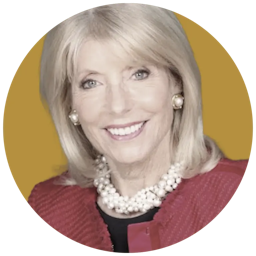A Crash Course in Sensitivity for the Tough Guys at UPS
This article is from the archive of The New York Sun before the launch of its new website in 2022. The Sun has neither altered nor updated such articles but will seek to correct any errors, mis-categorizations or other problems introduced during transfer.

You know those UPS fellows in brown who routinely hurl boxes marked “Fragile” onto sidewalks, barely missing dogs and small children? You may think they are good candidates for sensitivity training. Astonishingly, so does their management.
Each year, the United Parcel Service sends 16 workers to live at the Henry Street Settlement on the Lower East Side for one month. The goal is to broaden their understanding of what might be called the real world.
At one of New York’s most celebrated centers for social work, they work among people suffering from AIDS, homelessness, addiction, and other afflictions. They visit Sing Sing prison and meet groups dealing with unemployed youths. They are also introduced to the New York City subway, possibly the toughest initiation of all.
They live in Spartan quarters at the settlement house and are asked, in effect, to put their lives on hold, with only one weekend visit home allowed during the month. It is not easy, and not always pleasant, but UPS employees clamor to be chosen for the program.
Why? Because UPS considers it a plum assignment. Many, if not most, of UPS’s senior management have interned at Henry Street or at similar programs in four other locations around the country.
It is not just a rite of passage. UPS takes very seriously the need for its executives to have personal knowledge of the communities they serve.
This is not new. In 1968, long before such ideas became politically correct, UPS management realized that its drivers and delivery people needed to engage more effectively with the neighborhoods they work in.
Elinor Polansky, who has run the program for Henry Street since 1990, has seen it change over the years. She traces its origins to the race riots of the late 1960s, when the Teamsters, among others, decided that the country’s unrest sprang from a lack of jobs. Corporations were exhorted to broaden their hiring practices, and most did.
At the time, UPS, like most companies, hired mostly white men in entry-level hourly positions. Few had college degrees and many were not particularly tolerant. As Ms. Polansky tells it, the first groups she nervously encountered going through the Henry Street program definitely needed what today would be called diversity training.
Some were tough cookies who engaged in stereotyping of all sorts and resisted the engagement that Henry Street requires. The program was designed “to make them as uncomfortable as possible.” However, “by the time they left, they were happy,” Ms. Polansky said.
Over time, the profile of the UPS interns has changed. Now the group is co-ed, younger, mostly college educated, and includes one or two foreigners. The volunteers are described by Robert Kapelski, corporate schools manager for UPS, as senior-level managers.
Mr. Kapelski lists four goals of the program: greater awareness of the community, understanding, sensitivity, and involvement. According to Mr. Kapelski, UPS fervently hopes that employees will come home from the program driven to volunteer. They are encouraged to spread that zeal to their co-workers.
It’s an expensive undertaking, paid for by shareholders. Since 1968, more than 1,300 employees have gone through the program, at a total cost exceeding $14 million. Is it worth it? UPS thinks so.
“UPS is on every doorstep,” argues Mr. Kapelski. “In order to manage, we have to stay on the cutting edge.”
For example, maybe a manager is dealing with a new hourly employee who is repeatedly late for work. The excuses are factors that are beyond his control, and endemic to a troubled neighborhood. The Henry Street training might help the manager deal creatively with the problem, rather than simply firing the tardy employee. This allows a needy youngster to work through a challenging situation, and probably guarantees the employee’s loyalty.
Not only is that a gratifying outcome for the community, it makes good business sense. Mr. Kapelski points to the low management turnover at UPS (6% to 9%) as vindication of this type of training, and of the culture at large. The company tends to hire from within, and the average manager has been with the company for more than 20 years.
UPS’s chairman, Michael Eskew, started as a part-timer, as did Mr. Kapelski. Mr. Eskew carries on the tradition of social commitment at UPS. UPS is the largest corporate donor to the United Way. The company also undertakes a broad-based stock distribution each year, furthering the sense of partnership with its workers.
Indeed, Wall Street has taken notice. A leading analyst, Scott Flower of Citigroup’s Smith Barney unit, reiterated his buy recommendation on the stock in a report dated May 11. Part of his investment thesis is the company’s “deep management bench,” in addition to positive growth and financial characteristics.
It is always difficult to measure the impact of a charitable act. However, the social conscience of a company can without a doubt become ingrained in management practices, and better all involved – workers, customers, and community. For UPS, the Henry Street program appears central to the process.

